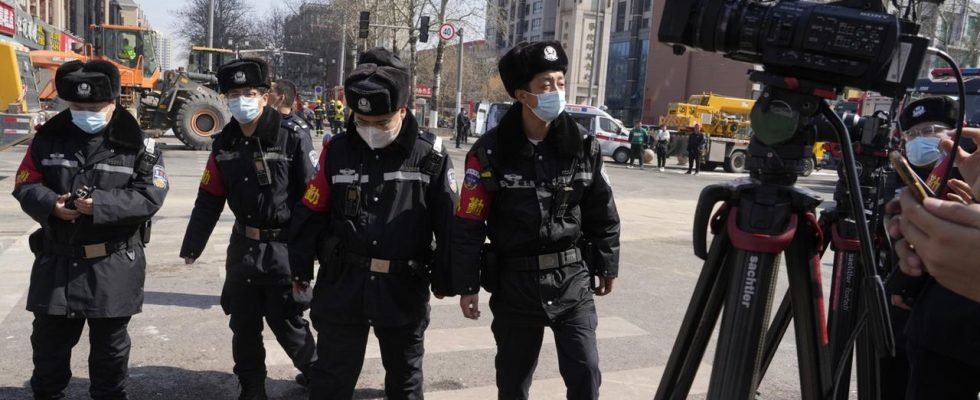Monitored, hindered or harassed: the work of journalists is becoming even more difficult in China. This was the result of a survey among foreign correspondents. Accordingly, they are said to have been tracked with drones for the first time.
Press freedom in China remains poor. Despite easing after the corona pandemic, foreign journalists in China continue to complain about difficult working conditions, according to a survey by the Association of Foreign Correspondents in China.
The abolition of Corona restrictions offers journalists greater freedom of movement in the country, according to the Foreign Correspondent’s Club (FCCC). However, due to the regained mobility, reporters again had problems with independent reporting on site, which had already been complained about before Corona.
Tracked with drones for the first time
Intimidation and surveillance remain significant barriers to reporting, according to the annual survey, which included 101 of 157 FCCC members. 81 percent answered that they had experienced harassment or violence.
As in the previous year, just over half said that police or authorities had hindered them at work at least once. The state is apparently increasingly relying on technical means. For the first time, journalists said in the survey that they had been followed and monitored by drones.
More regions are considered politically sensitive
Disabilities are particularly reported in areas that are politically sensitive from the state’s perspective. The survey shows that 85 percent of foreign journalists who tried to report from the northwestern Chinese region of Xinjiang had problems. The region inhabited by the Muslim Uyghur minority is repeatedly in the headlines due to human rights violations. The Uighurs complain about oppression. The communist leadership in Beijing rejects the allegations.
According to the FCCC, the list of politically sensitive areas even appeared to have expanded. Reporters in areas bordering Russia and Southeast Asian countries, as well as in regions with ethnic minorities such as Inner Mongolia, reported increasing problems with their reporting.
Also Interviewee feel pressure
Authorities not only put pressure on reporters, but also interviewees. The vast majority of respondents said that their interviewees canceled interviews because they were told not to speak to foreign media.
Under Chinese law, journalists have the freedom to report on a wide range of topics and to interview whomever they want. In fact, China ranks 179th out of 180 nations in the Reporters Without Borders press freedom ranking. The situation was only worse in North Korea.
Entry of journalists is becoming more difficult
The Association of Foreign Correspondents in China also criticized the fact that the communist state and party leadership was making it increasingly difficult for journalists to even come to the country. Around a third of those surveyed said that their offices are understaffed because reporters do not receive a work permit in the country.
However, China recently temporarily lifted the visa requirement for tourists and business travelers from Germany and a number of other primarily European countries.
With information from Christoph Kober, ARD Beijing
Christoph Kober, ARD Beijing, tagesschau, April 8, 2024 8:59 a.m

